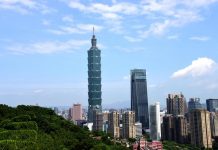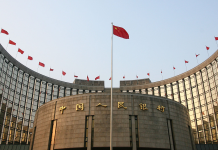BEIJING: The spotlight will be on Beijing as the two sessions, China’s biggest annual political event and a window to observe the country’s development, get underway on Saturday.
The two sessions are the meetings of the National People’s Congress, the nation’s top legislature, and the National Committee of the Chinese People’s Political Consultative Conference, the country’s top political advisory body.While looking back at achievements made in the past years, policymakers will use the two sessions to set development goals for the year ahead and unveil new policy priorities.
Against the backdrop of the lingering effects of COVID-19, all eyes are on China and how it formulates its 2023 socioeconomic development goals after announcing on Feb 16 that it had secured a “major, decisive victory” in fighting the virus.
Observers are also watching how policymakers respond to people’s concerns over issues such as employment, education, housing and healthcare, as well as how the legislation and policies unveiled at the two sessions boost market confidence both at home and abroad.
Gao Ruidong, chief macroeconomist at Everbright Securities, said the key phrases for this year’s two sessions will be “stabilizing growth” and “boosting high-quality development”. The focus will also be on what measures are unveiled to stimulate consumption and expand investment, particularly in the infrastructure, manufacturing and real estate sectors, he said. In the past three years, China’s average economic growth maintained a hard-won 4.5 percent year-on-year, Gao said, adding that the growth rate is expected to be higher this year given the good momentum and the rapid recovery of both consumption and investment. The strong resilience of the Chinese economy can be seen in official statistics. In January, the country’s manufacturing sector started to expand again after shrinking for three consecutive months, with the purchasing managers’ index reaching 50.1, up from 47 in December, according to data from the National Bureau of Statistics.
As China has optimized its epidemic prevention and control measures, the flow of people, goods and information has brought much vitality to the country. The rebound of the Chinese economy has not just attracted global attention, but has also sparked interest among international investors. Foreign direct investment in the Chinese mainland, in actual use, expanded 14.5 percent year-on-year to 127.69 billion yuan ($18.4 billion) in January, according to the Ministry of Commerce.
After international investment banks and financial institutions, including Morgan Stanley, Goldman Sachs, HSBC, Barclays and Natixis, upwardly revised their 2023 forecasts for China, the International Monetary Fund also lifted its forecast of China’s economic growth rate for this year.
–The Daily Mail-China Daily Mail news exchange item






